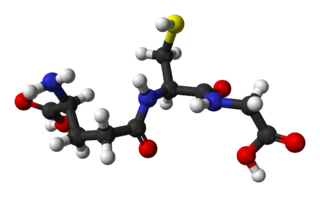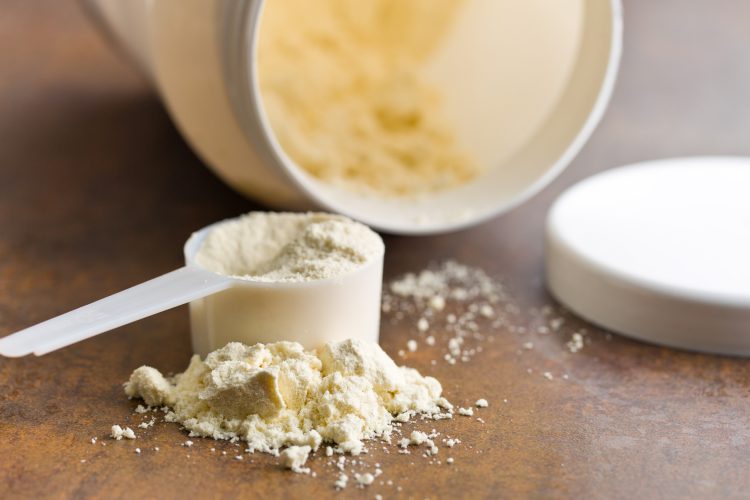Whey’s unique nutritional advantages make it superior to other protein sources for muscle-building applications.

- Improved weight loss. Whey may be better than other protein sources at promoting loss of fat.
- Antioxidant support. By providing large concentrations of the amino acid cysteine, whey protein helps maintain healthy levels of the antioxidant glutathione.
- Serotonin support. Whey protein may be able to increase low serotonin levels by providing tryptophan.
- Blood pressure support. Whey proteins called lactokinins appear to suppress an enzyme that promotes blood vessel constriction.
- Regulation of fats. Whey may be able to suppress elevated blood levels of cholesterol and other fat molecules in overweight/obese people.
- Alleviation of age-related muscle loss. Whey’s rapid absorption appears to make it ideal for stimulating muscle growth in older individuals.
Overview
Whey protein is isolated from whey, the liquid part of milk that is left over during the cheese-making process. Whey contains carbohydrates such as lactose, minerals, fats, and several types of proteins. It is these proteins — mainly alpha-lactalbumin, beta-lactoglobulin, lactoferrin, serum albumin, and immunoglobins –that are isolated from whey using various techniques to produce whey protein powder.
Whey protein is a ‘complete’ source of protein because it contains all nine essential amino acids that the human body requires for proper function but cannot produce by itself. It has particularly high levels of the three branched-chain amino acids (BCAAs) – leucine, isoleucine, and valine – that are heavily involved in the maintenance of muscle tissue.
Whey protein is widely used as a dietary supplement for people who wish to up their protein intake, and is most popular with bodybuilders looking to increase muscle growth from resistance training. It is also used for helping with sacropenia (age-related muscle loss), weight loss, weight gain, and some medical conditions.

Types of Whey Protein
Whey protein comes in four major forms:
- Whey Powder. Whey used as an additive in a variety of food products. This simple powder contains 11-14.5% whey protein and 63-75% lactose.
- Whey Concentrate. Whey protein that had most of its water, lactose, and some minerals removed. Concentrates can contain anywhere from 25-89% whey protein, but typically provide 80% and are sold as dietary/sports supplements. Compared to isolates, whey concentrates are cheaper, can be beneficial for weight loss due to a slower digestion time, and are considered more nutritious because of more biologically active components.
- Whey Isolate. A more purified version of concentrate that contains 90% or more whey protein and very little lactose. Compared to concentrates, whey isolates have the advantage of higher protein content, and being ideal for lactose intolerant individuals. Some of the proteins in isolates become denatured which reduces their overall nutritional value, but this has no effect on building muscle.2
- Whey Hydrolysate. A form of whey concentrate or isolate where the proteins has been hydrolyzed, breaking them apart into their constituent amino acids. This has the advantage of making the supplement even easier to absorb, which may make it better at repairing exercise-induced muscle damage.3
Whey Protein’s Beneficial Bio-Activities
Aside from the general properties of protein, whey protein has a number of unique mechanisms of action:
Glutathione support

Enhancement of tryptophan
Alpha-lactalbumin, one of the main proteins in whey, is particularly rich in the amino acid tryptophan that is required to produce the neurotransmitter serotonin. Serotonin dysfunction have been linked to a wide variety of mental disorders including depression and anxiety, and as early research indicates, supplementing whey protein may be able to raise serotonin production and thus have a positive impact on depression, stress, and other cognitive aspects.
Inhibition of the ACE enzyme
ACE is an enzyme known for stimulating the constricting of blood vessels, which results in increased blood pressure. It appears that certain proteins called lactokinins in whey are capable of inhibiting the action of this enzyme, resulting in the reduction of blood pressure.5
Potential suppression of lipids
Another possible biological activity of whey protein is the suppression of various fat compounds such as cholesterol and triglycerides. Researchers theorize that proteins in whey may directly affect the synthesis of cholesterol in the liver, inhibit its absorption in the intestine, and block certain genes involved in the production and absorption of fatty acids.

Whey Protein’s Reputation & Proposed Benefits
Promotion of muscle growth
Whey protein is far and away the most popular protein supplement for supporting muscle growth. Whey is regarded as the best source of protein for building muscle when combined with resistance training, and indeed there is some scientific evidence to support this:
- Whey protein contains some of the highest concentrations of essential amino acids of any protein source, including the three BCAAs. These are needed not just for muscle growth and repair but overall body function.
- Whey protein has the highest known concentrations of the BCAA leucine (up to 14 g / 100 g), which is unique among amino acids for its ability to directly stimulate muscle protein synthesis, and may also possibly suppress muscle protein breakdown.6
- Whey protein is digested and absorbed easily and quickly, and has been shown to result in a much larger acute (up to 3 hours after consumption) spike in muscle protein synthesis than other protein sources.
However, the debate of whether these advantages add up to higher muscle gain in the long-term is still ongoing. While some studies have indeed shown whey protein to result in more lean body mass gains than other sources such as casein following prolonged (10 weeks+) consumption and strength training, others have reported no difference. In the end, more research is needed to back this up with real data.

Promotion of weight loss
A number of studies have shown that whey protein might complement fat burner regimens: It appears to promote body fat reduction and decreases loss of muscle during weight loss, most likely by increasing the feeling of satiety. And even though high-protein diets have been shown to support weight loss regardless of the protein source, there is some evidence to suggest that whey may do this better than other protein sources, such as soy and casein.7 8
In addition, whey protein may suppress elevated levels of lipids such as cholesterol in overweight and obese individuals, reducing the risk of developing metabolic and cardiovascular disorders.
Alleviation of age-related muscle mass reduction
Aging is associated with loss of muscle mass known as sarcopenia, and one of the reasons for this is an impaired response to dietary protein. Research suggests that in older individuals, whey protein may be utilized better by the body than other protein sources, resulting in increased muscle protein synthesis for at least several hours after ingestion.9
As such, whey protein may be the best protein source for attenuating muscle loss in the elderly.
Enhanced antioxidant defense
Whey protein appears to support the body’s antioxidant defenses by maintaining optimal levels of glutathione, a key antioxidant compound naturally made and stored in the human body. Glutathione levels can be reduced in some situations, such as after intense exercise, in some health conditions, and in older individuals, making the body more vulnerable damage caused by oxidative stress.
Blood pressure balance support
One of the lesser known benefits of whey protein appears to be support for normal blood pressure. This potential bio-activity has been reported in several studies.10
Research
Human Research
Whey protein may improve blood pressure and cardiovascular function in overweight/obese people
In this randomized study, 70 overweight or obese people were supplemented daily with whey protein isolate, casein (both containing 54 g protein), or placebo for 12 weeks. Systolic blood pressure was substantially reduced at week 6 for both whey and casein groups, while diastolic blood pressure decreased by week 12. In addition, Augmentation index — a measure of cardiovascular health — was also improved by week 12 only in the whey group.
- The researchers concluded that “supplementation with whey protein improves blood pressure and vascular function in overweight and obese individuals“11
This double-blind trial examined whether whey protein isolate is superior to casein for improving muscle mass and strength gains from resistance training. Thirteen bodybuilders took either 1.5 g/kg body weight hydrolyzed whey isolate or casein protein daily while undergoing training for 10 weeks.
The whey group saw greater improvements in lean mass (+5 kg vs +0.8 kg casein), fat mass (- 1.5 kg vs +0.2 kg casein), and strength, although the researchers noted that these results are limited by the small sample size and the fact that the subjects in the whey group weighted 4.5 kg more on average at the start of the study.
- The researchers concluded that “the group that consumed whey isolate demonstrated a significantly greater gain in lean body mass and strength. This group also experienced a significant decrease in fat mass compared to the casein group“12
In this randomized, double-blind study, researchers compared the effects of whey and soy protein in combination with resistance training. Twenty-seven untrained participants supplemented whey protein, (1.2 g/kg) soy protein (1.2 g/kg), or placebo daily for 6 weeks while undergoing training.
The study showed that protein supplementation increased muscle mass and strength regardless of protein source.
- The researchers concluded that “young adults who supplement with protein during a structured resistance training program experience minimal beneficial effects in lean tissue mass and strength“13
Whey protein appears to support the antioxidant glutathione
This study tested whether whey protein supplementation could boost the body’s levels of glutathione, a natural antioxidant. In the first experiment, 9 sedentary men were given 0.8 or 1.6 g/kg whey protein isolate (WPI). In the second experiment 18 men involved in intense aerobic exercise took 1 g/kg body weight WPI daily for 6 weeks and completed a 40 km cycling trial.
Although glutathione levels were unaffected in the sedentary men, WPI mitigated the decrease in glutathione concentrations in the exercising group.
- The researchers concluded that “The aerobic training period resulted in significantly lower glutathione concentrations in whole blood, an effect that was mitigated by WPI supplementation. A significant increase in mononuclear cell glutathione was also observed in subjects receiving the WPI supplement following the 40 km simulated cycling trial“14
This double-blind trial tested whether alpha-lactalbumin, one of the main proteins found in whey, can be helpful for stress-prone individuals. Twenty-nine people vulnerable to stress and 29 stress-resistant individuals followed a diet with casein protein (placebo) or alpha-lactalbumin-enriched whey protein (A-lac) and were then exposed to stress.
The A-lac diet decreased depressive symptoms and cortisol (stress hormone) levels in the stress-vulnurable individuals.
- The researchers concluded that “a diet composed of tryptophan-enriched whey proteins in healthy but stress-vulnerable subjects could improve the ability to cope with stress by enhancing brain serotonin function“15
Whey protein may promote weight loss in overweight/obese adults
In this double-blind, randomized trial, 90 overweight or obese adults were given a whey protein (56 g protein), soy protein (56g protein), or carbohydrate placebo drink daily for 23 weeks. At the end of the study, the whey group weighed on average 1.8 kg less and had 2.3 kg less body fat than the placebo group. Moreover, people in the whey group had smaller waist circumference than soy or placebo groups, and also had lower levels of ghrelin, a hormone that promotes appetite.
- The researchers concluded that “after 6 mo of supplementation, there was a difference in body weight and fat mass between overweight and obese adults who consumed supplemental WP compared with those who consumed isoenergetic supplemental CHO“16
This double-blind, randomized study tested whether higher protein intake (as whey protein) could be beneficial for weight loss in older women. Thirty-one overweight or obese women (average age 65) followed a calorie-restricted diet and took either 50 g whey protein or maltodextrin placebo daily for 6 months.
The trial found that women in the whey group had greater weight loss (8% vs 4.1% placebo) and lower relative muscle loss.
- The researchers concluded that “increasing protein intake during weight loss can offset the deleterious effects on muscle mass by maintaining more muscle relative to weight lost“17
Whey protein isolate may improve metabolic disorder risk factors in overweight/obese individuals
This study examined the benefits of whey protein for overweight and obese individuals. Seventy people were randomly assigned to take whey protein isolate (27 g protein), casein protein (also 27 g protein), or placebo twice daily for 12 weeks, and had their body composition and various blood parameters measured.
Although there was no significant change in body composition in any group, the whey group had lower levels of triglycerides, and saw a significant decrease in total cholesterol and LDL cholesterol, in addition to improved insulin resistance.
- The researchers concluded that “whey protein has the potential to be used as an added component in dietary plans and in functional foods aimed at the management of chronic diseases in overweight and obese individuals“18
Whey protein may be more effective than casein for helping with age-related muscle loss
This study compared the muscle protein synthesis (MPS) effects of whey, casein, and casein hydrolysate protein in healthy older adults. Forty-eight older men (mean age 74) were randomly assigned to take 20 g of one of the three protein forms. Whey stimulated post-meal muscle synthesis better than either casein form, likely as a result of faster digestion and absorption, and higher leucine content.
- The researchers concluded that “Whey protein is more effective than casein and casein hydrolysate at promoting postprandial muscle protein accretion in healthy older men…These data are of great clinical relevance to the determination of more effective nutritional strategies to attenuate age-related losses of muscle mass“19
This highly- cited study tested the effects of three different types of protein — whey hydrolysate, casein, and soy isolate — on muscle protein synthesis (MPS) in 18 resistance-trained men. The participants performed a bout of intense resistance leg exercise and took a drink containing one of the three protein types standardized to provide 10 g of essential amino acids. Their MPS was then tested in the exercised, and non-exercised (at rest) leg.
MPS in the whey group was 93% greater than casein and 18% greater than soy at rest, and 122% and 31% greater following exercise. In addition, whey protein resulted in the largest increase in blood essential amino acids, branched-chain amino acids (BCAAs), and leucine in particular.
- The researchers concluded that “consumption of whey protein hydrolysate stimulates skeletal MPS to a greater extent than either casein or soy“20
Whey Protein Dosage
- Successful studies have used whey protein doses containing 20 g – 57 g protein daily
- Whey protein supplements typically provide 15 – 30 g protein per scoop depending on the specific brand, recommended to be taken daily to reach your specific protein intake goals
- For resistance training, 1.2- 1.5 g/kg body weight protein is recommended for optimal muscle growth, and taking a 20 g dose of whey protein immediately prior to or after exercise is ideal21
- For sedentary individuals, 0.8 g/kg protein body weight is recommended
Supplements in Review Recommendation
- Whey protein concentrate with 20 g protein daily or before/after resistance training.
Whey protein has many unique advantages and may be better than other protein sources. Although it’s too early to say anything conclusive, current research is leaning towards whey protein being somewhat better than other protein sources at promoting weight loss, and possibly muscle growth. When considered alongside its unique health benefits and high quality, whey is arguably the best protein source available.
Whey concentrates providing around 20 g protein per scoop are a good starting point. It’s difficult to suggest a single dosage and form since everyone has different goals, activity levels, and body weight. However, 20 g is a good starter dose to supplement your existing protein intake, or to take specifically before or after a strength workout.
References
Leave a Reply